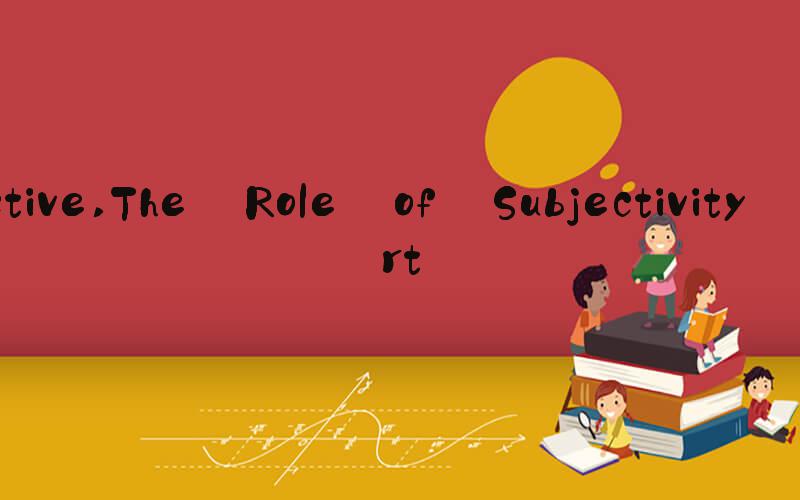
 Subjective
SubjectiveSubjectivity refers to the personal perspective of an individual. It is the way in which we all see the world based on our own experiences, beliefs, values and emotions. Subjective views can differ greatly between people as each person interprets and reacts to experiences and information in his or her own unique way. Subjectivity is important in many aspects of our lives, including politics, culture, art, psychology and more.
The Role of Subjectivity in ArtArt is one of the most subjective things in the world. Artists use their creative talents to express their emotions, thoughts and feelings through various mediums, such as painting, sculpture, music and literature. The subjective nature of art allows for multiple interpretations and reactions by individuals based on their own experiences and beliefs. Art exposes us to different perspectives and helps us to understand the world around us in a more nuanced and meaningful way.
Subjectivity in Politics and SocietySubjectivity plays an important role in politics and society. Our beliefs, values and emotions influence the way we see and react to various political and social issues. Different people can have vastly different views on the same issue, depending on their personal experiences and beliefs. Understanding the subjective nature of politics and society is crucial in developing empathy and understanding towards others who may have different perspectives.
Subjectivity and BiasSubjectivity can often be viewed as synonymous with bias. However, it is important to recognize that everyone has biases based on their own experiences and beliefs. It is impossible to eliminate all biases, but we must make an effort to recognize them and try to be as objective as possible. In journalism and other forms of media, it is important to acknowledge any biases that may exist and strive to present information in a fair and balanced manner.
The Benefits of SubjectivityWhile subjectivity can sometimes lead to bias, it also has its benefits. Subjectivity allows for creativity and individual expression, and can contribute to personal growth and development. It encourages us to think critically and to challenge our own beliefs and assumptions. Subjectivity also allows for diversity and inclusivity, as individuals from different backgrounds and experiences may have unique perspectives and insights to offer on various issues.
Final ThoughtsSubjectivity is an inherent part of being human. Our experiences, beliefs, values and emotions all contribute to the way we see and interact with the world around us. While subjectivity can sometimes lead to bias and misunderstandings, it also has its benefits, including creative expression, personal growth and diversity. By acknowledging our own subjectivity and being open to the perspectives of others, we can develop empathy and understanding towards others who may have different views and experiences than ourselves.
